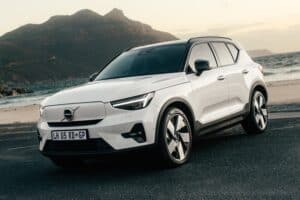While confirmed for South Africa later this year, the Trafic is anticipated to feature a broader range of safety and driver assistance systems.

One of the first vehicles to originate from Mitsubishi’s integration with the Renault-Nissan Alliance has been axed after less than two years following a dismal crash test performance.
Revived in 2020 as a rebadged version of the Renault Trafic after what had been a seven-year hiatus, the Mitsubishi Express came under significant scrutiny after receiving a zero-star crash test rating by Australia’s version of EuroNCAP, ANCAP, in March last year.
Introduced without a number of active safety systems as a way of keeping not only costs down, but also to avoid possible price clashes with the more expensive, better equipped Trafic, the Express obtained a 55% adult protection and 7% Safety Assist rating with ANCAP describing its performance as “below par for occupants and vulnerable road users”.
ALSO READ: Mitsubishi Express priced Down Under as forbidden-for-South Africa HiAce rival
“The Express’ poor result sends a clear signal to manufacturers and their global parent companies that safety must be prioritised in all segments offered to the Australasian market,” ANCAP said.
“We know Mitsubishi can deliver vehicles with high levels of overall safety and a wide range of modern safety technologies and we encourage them to accelerate the introduction of these features into their van product”.
In a rebuttal, Mitsubishi Australia, in a statement, remarked that the Express, whose Trafic origins stem from 2015, conforms to the stringent Australia Design Rules requirements and it “holds a competitive position in terms of NCAP rating compared to competitor peers of a similar age”.

Back in 2015, the Trafic received a three-star rating by EuroNCAP, which has remained in place despite the implementation of tougher requirements since then.
“The van was designed in accordance with the 2015 NCAP protocols. There has been significant movement in the application of driver assistance technologies since that time, which has been reflected in the new NCAP protocols against which this van has been tested,” an unnamed Mitsubishi Australia spokesperson told carexpert.com.au at the time.
According to ANCAP, the Express didn’t offer sufficient levels of chest-protection despite being fitted as standard with up to five airbags, the side cargo door buckled on impact and occupants faced the risk of potential neck injuries due to excessive whiplash.

Despite Mitsubishi, at the time, stating that the Express will remain available, with ANCAP also confirming its willingness to re-evaluate the results once changes are made, drive.com.au alleges that the findings has caused an uproar within the alliance following the subsequent tanking of sales.
“After assessing current global business and supply conditions with Mitsubishi Motors Corporation, the decision has now been made to cease production of Australian market Mitsubishi Express,” a statement by Mitsubishi Australia obtained by the publication read.
The phasing-out will commence from this month, initially with the short wheelbase model, followed by the long-wheelbase with stock, of the former, anticipated to last until the end of this year.

One of the cheapest one-ton vans on sale in Australia when it debuted, the Express’ rating comes on the back of a similar poor showing in 2013 where the then Japanese sourced model, derived from the already dated third generation Delica that bowed in 1984, received a one star ANCAP rating that led to its immediate withdrawal soon after.
A revised of the Trafic has been confirmed for South Africa from the second quarter of this year, but unlike the Express, it is expected to feature a more substantial array of safety and driver assistance tech likely modelled on that of the European model.
Support Local Journalism
Add The Citizen as a Preferred Source on Google and follow us on Google News to see more of our trusted reporting in Google News and Top Stories.






